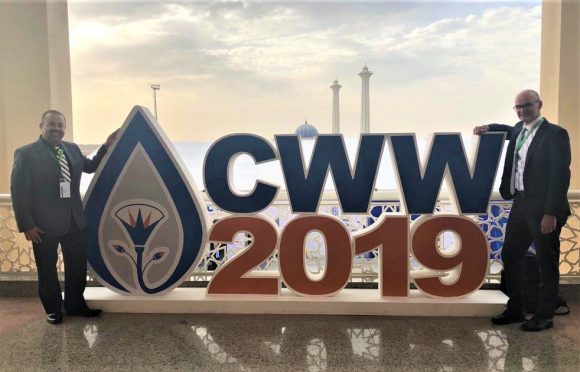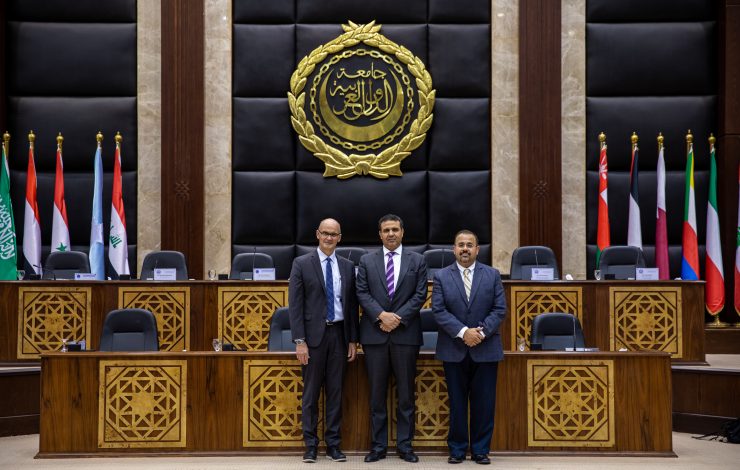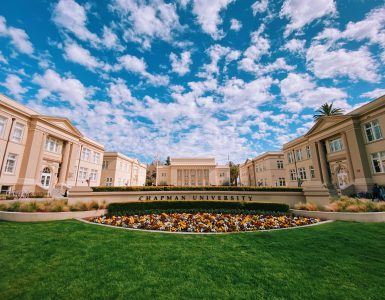Chapman University professors Hesham El-Askary, Ph.D. and director of computational and data science graduate programs, and Thomas Piechota, Ph.D., PE and vice president for research, attended the 2019 Cairo Water Week Conference in Egypt and visited the Arab Academy of Science, Technology and Maritime Studies.
El-Askary moderated and presented a session on “Research and Innovation in Facing Water Scarcity Issues,” and discussed how remote sensing and climate information could be used for improved hydrologic data, data which charts the movement, distribution and quality of water.
Piechota presented research on how climate indicators linked to water conditions can be used to make long-range projections of stream flow three to twelve months before there is a need for water management assisstance.

Water scarcity is a critical issue for areas like the Nile River, which faces water stresses due to new water projects in the river basin as well as changing climate conditions.
El-Askary and Piechota’s presentations discussed innovative approaches for addressing and facing water scarcity through the implementation of multiple integrated technologies that can easily be updated at any time. Their presentations discussed both technological approaches that can be scalable in data resource-volume and processing capacity to empower stakeholders and decision makers.
“Sharing new research and innovation at meetings like Cairo Water Week is important in addressing global water issues using the latest technology and findings,” says Piechota. “Water scarcity is an issue that challenges many parts of the world including the Nile River.”
Additionally, El-Askary initiated a successful partnership between the National Atmospheric Space Administration (NASA) and the Arab Academy of Science, Technology and Maritime Studies (AASTMS) that will result in a new AERONET (AErosol RObotic NETwork) climate station, located on the AASTMS campus. The AERONET climate station will measure water vapor and atmospheric aerosol properties will also improve the calibration of NASA satellites.
There are few AERONET stations in Northern Africa, and this new station will provide the necessary science measurements that are essential for ground-based validation of aerosol, cloud and other measurements taken by satellites.
“This partnership will result in enhancing research collaborations not only with the AASTMS but also with NASA itself,” says El-Askary.
Display Image at Top: Thomas Piechota, Ph.D.; Dr. Alaa Abdelwahed Abdelbary, Ph.D., vice president for post graduate studies and scientific research, Arab Academy for Science, Technology and Maritime Transport, and Hesham El-Askary, Ph.D.




